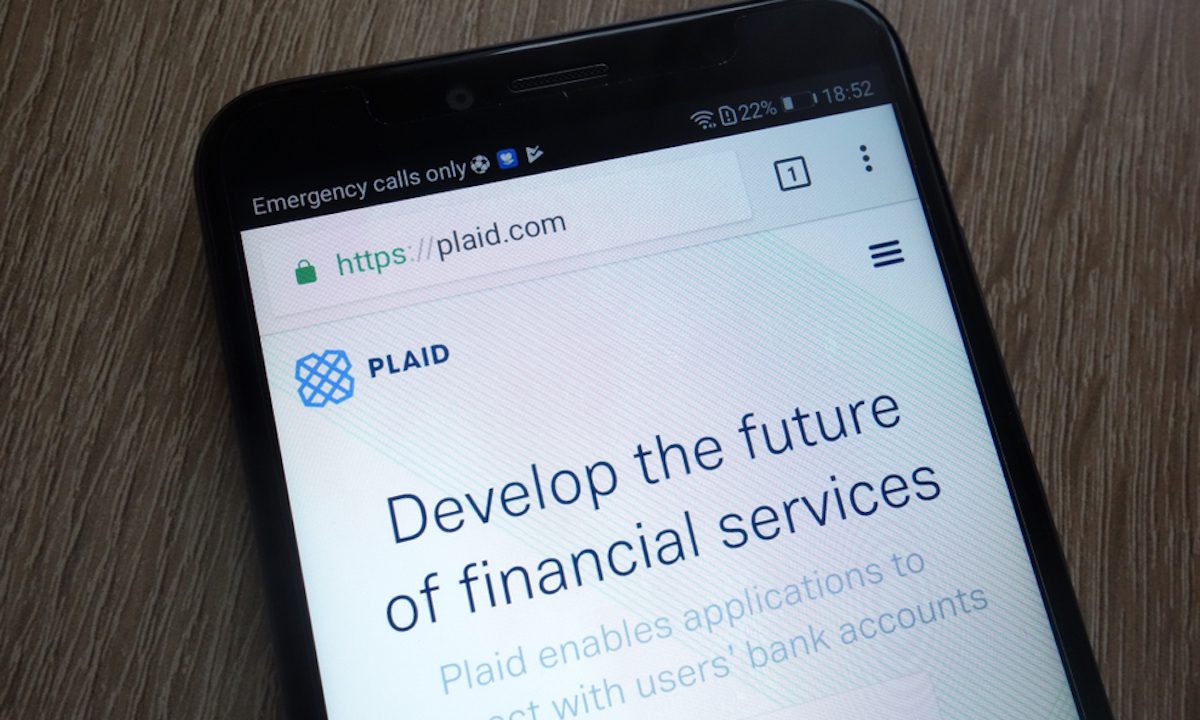Plaid’s Latest Funding Shows Open Banking Is Front And Center In US

Conventional wisdom might hold that open banking is a strictly European phenomenon. After all, the rise of the Revoluts of the world – the challengers and the neobanks, the digital upstarts that promise to upend financial services – are across the pond. And PSD2, of course, traces its roots to Europe.
But the bid to hasten the age of the killer app here in the States – where a continuum of services are under one digital umbrella, accessed by one digital front door – is getting additional tailwinds. Most notably, perhaps, that’s been shown by the rise of data aggregators such as Plaid and Finicity (the latter was acquired by Mastercard).
If the old adage that putting one’s money where one’s mouth is holds true, then it seems a number of the marquee names in finance are embracing open banking with open wallets – particularly Plaid, which is moving on from a scuttled merger with Visa.
See also: Visa Opts Out Of Plaid Acquisition, Cites Complex Litigation
As reported on Tuesday (Aug. 17), Plaid said in a blog post that it had received funding from J.P. Morgan Private Capital Growth Equity Partners and existing investor Amex Ventures, as part of a previously announced Series D capital raise.
Read more: Plaid Raises $425M Series D At $13.4B Valuation
The amount tied to the most recent August announcement was undisclosed.
More details: Plaid Raises Additional Series D Funding Led By JPMorgan, Amex
“These are storied companies intrinsic to the fabric of financial services, and are important partners. Both J.P. Morgan’s Growth Equity Partners and American Express will be critical in our effort to enable great financial outcomes for consumers and drive innovation in the industry,” Plaid said in the post.
J.P. Morgan and American Express might be considered part of the “old guard” of finance that now – along with any number of other traditional players – are moving toward the next level of data sharing and giving consumers control over how that data is used.
Tailwinds From The Biden Administration
Part of the shift is being prodded by the government. The Biden administration has issued an executive order that laid out suggestions (not requirements) that the Consumer Financial Protection Bureau (CFPB) should issue rules tied to data access. Those rules, as they take shape, would help determine how consumers can access their banking data, and how they’d be able to take that information from bank to bank or use third-party data.
In an interview with PYMNTS earlier this year, Glenn Geil, senior vice president and head of payments for the Americas at Endava, said that data portability is about more than getting a PDF of a past year’s worth of transactions and sending that file over to a mortgage lender when applying for a loan. “There needs to be a service that can store that data and combine it with what’s going on now,” he said.
You may also like: Biden’s Banking Order Backs Data Accessibility, But The Portability Debate Remains Unsettled
In part, that means working with data aggregators to link banks to consumers’ data, taking into consideration the consumers’ permission, where data can be pulled from hundreds, or perhaps thousands, of sources. In an amplified signal that the banks are getting on board with data collection and dissemination and sharing – and the attendant risks – a number of banks participated in a test of The Clearing House’s Streamlined Data Sharing Risk Assessment offering.
See also: The Clearing House Rolls Out Data Sharing Evaluation For Apps, Aggregators
The movement the banks need, to quote an old Beatles tune, is on their shoulders. As detailed in one recent tracker, a majority of consumers surveyed said they would sign up for open banking accounts, particularly with tech names such as Amazon and Google.